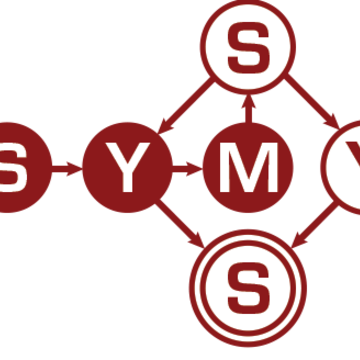SSP Forum: Miki Verma and Neel Rao (M.S. Candidates)

The
Symbolic Systems Forum
presents
Levees: An Empirical Study of Floodwater Redistribution in the U.S.
Miki Verma (M.S. Candidate)
Symbolic Systems Program
and
Using Multitask Learning to Evaluate Whether Written Goals are SMART.
Neel Rao (M.S. Candidate)
Symbolic Systems Program
Monday, April 25, 2022
12:15-1:15 pm
Margaret Jacks Hall (Bldg. 460), Room 126
NOTE: Due to Covid-19 restrictions on building occupancy, only current Stanford students, faculty, and staff may attend this event live
ABSTRACTS:
(1) Levees: An Empirical Study of Floodwater Redistribution in the U.S., Miki Verma (M.S. Candidate), Symbolic Systems Program (primary advisor: Daniel E. Ho, Law)
Flooding is the most common natural disaster in the U.S., causing over 200 billion dollars in damages in the last 30 year alone. Since the 1800s, levees, embankments that prevent water from entering a floodplain, have played a critical role in flood management in the U.S. While physics-based models are performed by engineers prior to construction projects to limit adverse impacts, flood victims, law suits, and academic papers have asserted that in redistributing floodwater, riverine levees redistribute flood risk up or downstream— to communities without this infrastructure. However, there has been little empirical research examining the actual effect of levees on flood levels. I examine this question at a national scale, extending the simple statistical method of a small-scale study (in IL, IA) to levees in the National Levee Database, then generalize this approach to a fully Bayesian treatment using a multi-level model.
(2) Using Multitask Learning to Evaluate Whether Written Goals are SMART, Neel Rao (M.S. Candidate), Symbolic Systems Program (primary advisor: Nick Haber, Education)
The goal of this project is to use natural language processing to identify whether a given written goal is specific, measurable, and/or time-bound. This is motivated by findings from education research that show that the practice of writing learning goals is beneficial for cognitive and noncognitive skill development, and that these effects are increased when the goals follow the SMART framework, meaning they are Specific, Measurable, Attainable, Relevant, and Time-bound (Lawlor, 2012; Moeller et al., 2012). Because attainability and relevancy vary based on the writer, I focus on the other three facets here. I experiment with four systems: one that uses separate vanilla RNNs with linear classification heads for each task, one that uses a single vanilla RNN base that feeds into three task-specific output heads, a system with three BERT models with linear classification heads, each fine-tuned on a separate task, and finally, a single fine-tuned BERT model base with three output heads, utilizing hard parameter sharing. From these experiments, I find that while the separate fine-tuned BERT models perform marginally better, the single BERT base model with three output heads is advantageous because of its parameter cost savings and reduced training time. This finding hopefully contributes to the development of AI goal-setting coaching.
A NOTE ON THE RECORDING OF EVENTS:
If a decision has been made in advance to record an event and to make it available for later public viewing, the event announcement will usually state this. In many cases, however, decisions to record, and/or to make a recording available publicly, are not finalized before an event is announced. Availability decisions for recordings are often subject to what speakers prefer after an event has concluded, among other considerations that may include usage rights for material used in an event, as well as the need for, and practicality of, editing. When recordings are made publicly available, they will be linked within the original event announcement on the Symsys website in the days or weeks following an event. Unfortunately, we cannot follow up on individual requests for more information about whether and when a recording may become available if it is not yet posted publicly.